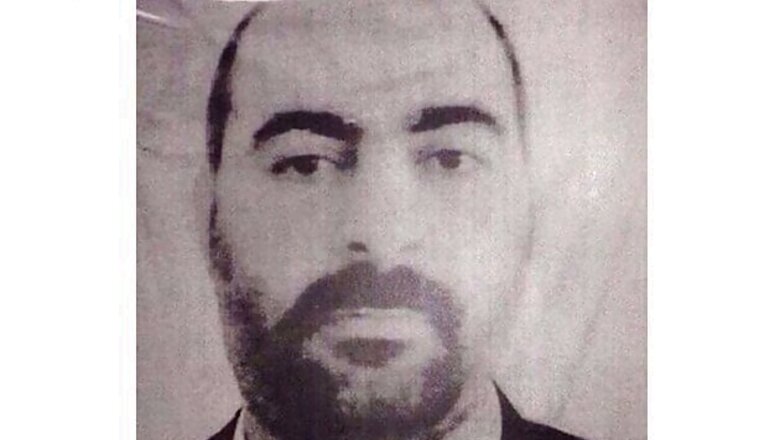
views
Last week, Iraq's second-largest city of Mosul fell to the Islamic State in Iraq and Syria (ISIS). In a few hours, the city's security forces had dropped their weapons and uniforms and fled. Since then, the militants introduced a political charter in Mosul and marched south, seizing additional towns en route to the capital, Baghdad.
When compared to other major terror outfits across the World, the ISIS is a very young organization with a history of less than four years. It gained prominence only after the killing of Al Qaeda chief Osama Bin Laden.
In taking Mosul alone, ISIS gained as much as $425 million in cash, an unspecified quantity of gold bullion, huge amounts of light and heavy weaponry (mostly US-made) and probably hundreds of new recruits from three main detention centers, all which were overrun.
What is ISIS?
- The ISIS is the most fanatical islamist terrorist organization in the World. It is a breakaway faction or a branch of Al Qaeda founded by Osama Bin Laden, who was killed by the US in 2011.
- ISIS wants to create an Islamic republic based on Sharia in Iraq and Syria.
- Led since 2010 by Abu Bakr al-Baghdadi, also known as Abu Dua, it has proved itself even more violent and sectarian than what US officials call the "core" al-Qaeda, led by Ayman al-Zawahiri, who is based in Pakistan.
- According to some reports the cruelty of the ISIS has shocked even the cruelest Al Qaeda terrorists. ISIS is highly fanatical, killing Shia Muslims and Christians whenever possible, as well as militarily efficient and under tight direction by top leaders.
- Since April 2013 ISIS has spent a lot of time breaking senior leaders out of prison and re-establishing a professional command and control structure; expanding operational reach, including into Syria, and exploiting rising Sunni discontent with the Shiite-led government of Iraqi Prime Minister Nuri al-Maliki, thereby encouraging sectarianism.
- ISIS may be the largest force involved (with about 8,000 fighters in Iraq), but it is far from sufficient to take and hold multiple urban centers. It is still totally reliant on an interdependent relationship with what remains a tacitly sympathetic and facilitating Sunni population. But this "relationship" is by no means stable and should not be taken for granted. The militant group has consistently failed to retain popular support, or at minimum, acceptance.
- Most of its fighters are from Europe, America and other countries in Africa and even Pakistan in Asia.
- This latest offensive is arguably the most significant event in Sunni jihadism since 9/11. Having already challenged al Qaeda's ideological legitimacy, ISIS has now underlined its perceived military superiority to a receptive younger and more fanatical generation of potential recruits around the world.
- ISIS currently has a budget of over $2 Billion (Rs.12, 000 crore). Earns most of it income from controlling oil rich areas of Iraq and Syria.
- In addition to massive quantities of small arms and ammunition, this latest offensive has seen ISIS reportedly seize dozens of US-made armored Humvees and military transport vehicles, American M198 howitzers and possibly even helicopters. There have been reports that other Sunni groups have seized more than a dozen armored personnel carriers and tanks. There can be no underestimating the impact this will have upon Iraqi instability.
- ISIS wants to end the rule of Shias in Iraq.
- Currently the Kurds who control semi-Independent Kurdistan are the only one who is preventing the ISIS.
Who is ISIS leader Abu Bakr al-Baghdadi?
According to a report in 'Independent' in the space of a year he has become the most powerful jihadi leader in the world. Abu Bakr al-Baghdadi, also known as Abu Dua, the leader of the Islamic State of Iraq and the Levant (Isis) has suddenly emerged as a figure who is shaping the future of Iraq, Syria and the wider Middle East.
He began to appear from the shadows in the summer of 2010 when he became leader of al-Qaeda in Iraq (AQI) after its former leaders were killed in an attack by US and Iraqi troops. AQI was at a low point in its fortunes, as the Sunni rebellion, in which it had once played a leading role, was collapsing. It was revived by the revolt of the Sunni in Syria in 2011 and, over the next three years by a series of carefully planned campaigns in both Iraq and Syria.
He was born in Samarra, a Sunni dominated city north of Baghdad, in 1971 and is well educated. With black hair and brown eyes, a picture of al-Baghdadi taken when he was a prisoner of the Americans in Bocca Camp in southern Iraq between 2005 and 2009, makes him look like any Iraqi man in his thirties.
His real name is believed to be Awwad Ibrahim Ali al-Badri al-Samarrai, who has degrees in Islamic Studies, including poetry, history and genealogy, from the Islamic University of Baghdad. He may have been an Islamic militant under Saddam as a preacher in Diyala province, to the north east of Baghdad, where, after the US invasion of 2003, he had his own armed group. Insurgent movements have a strong motive for giving out misleading information about their command structure and leadership, but it appears al-Baghdadi spent five years as prisoner of the Americans.


















Comments
0 comment